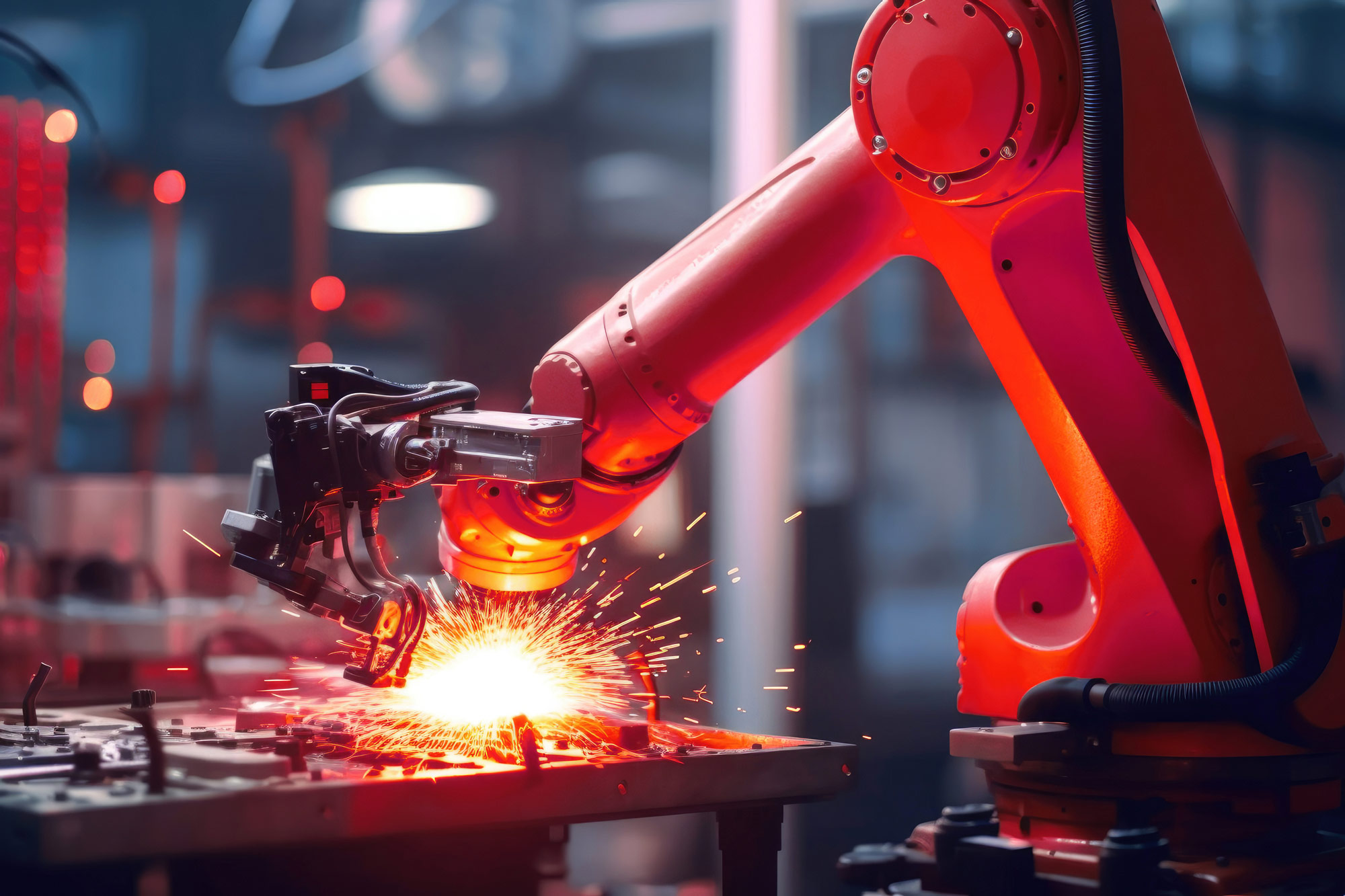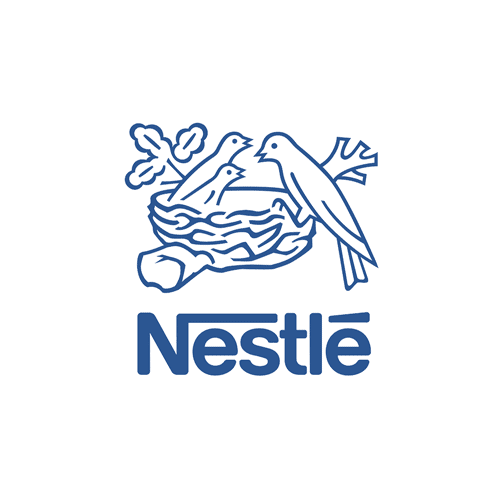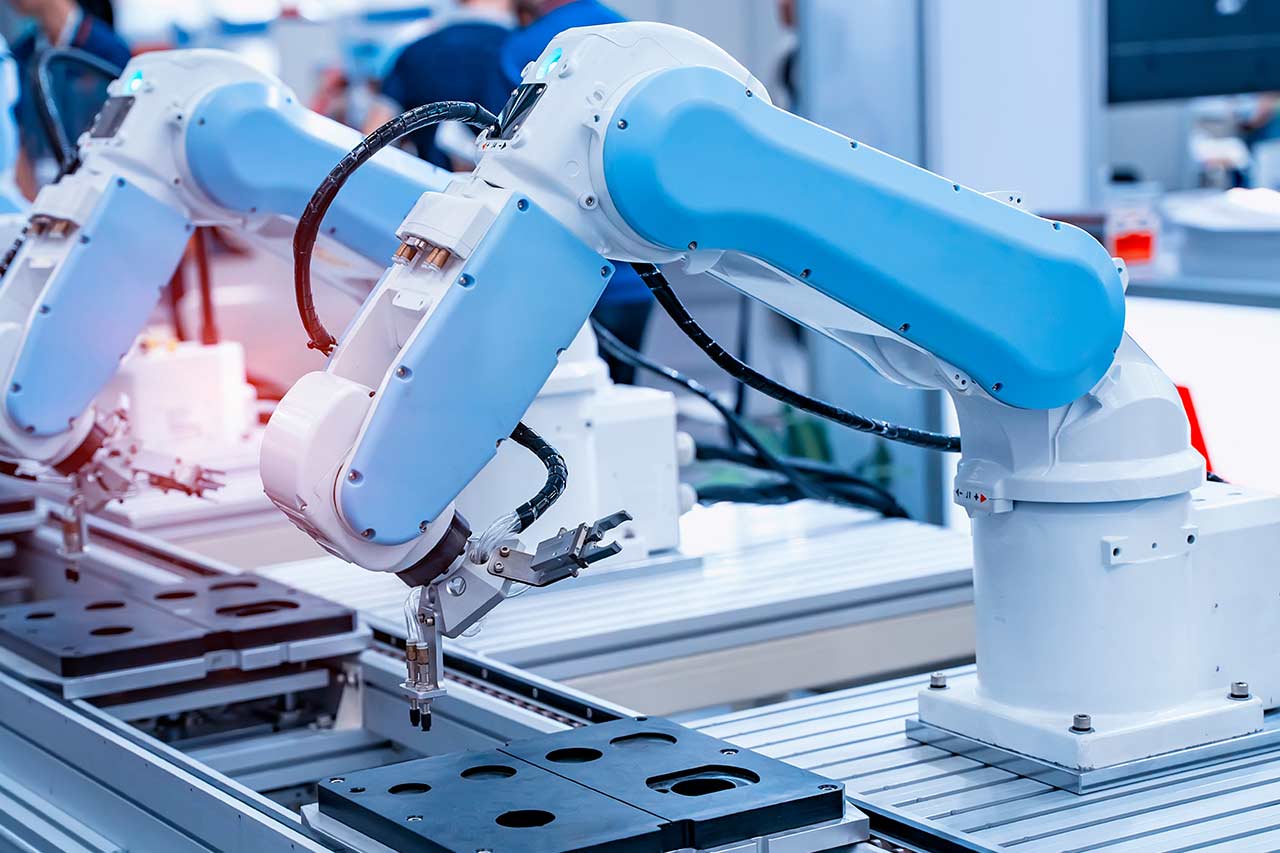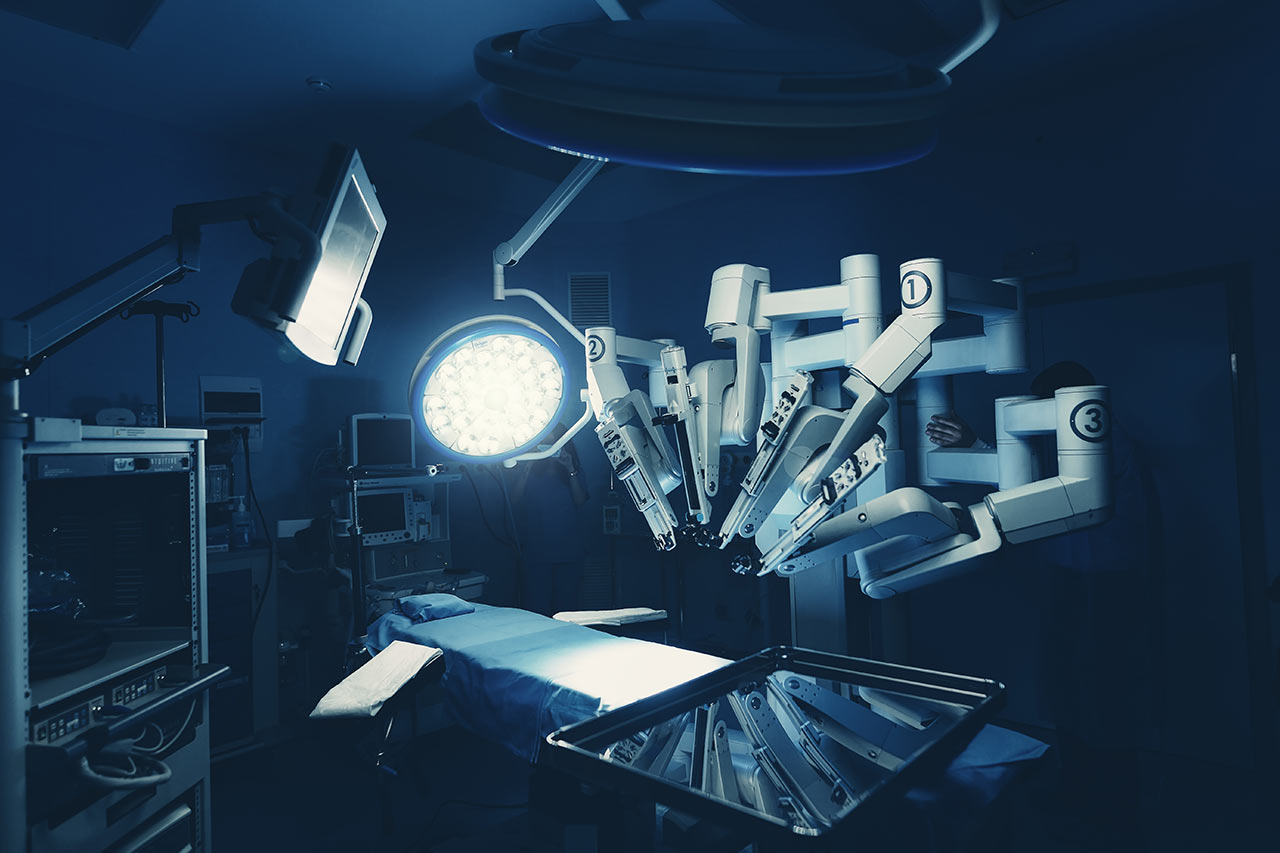
Industry 4.0

Optimize your production processes by integrating new technologies
Our specialized team supports manufacturers in the digital transformation of their plants, the development of new technologies and understand the issues related to industry 4.0.
They trust us















The challenges related to Industry 4.0 and the industry of the future
Industry 4.0 is experiencing strong growth across the world. There has been a general acceleration in the development and deployment of factories 4.0, for example, in France with the support of the France Relance plan.
If the digital transformation of industry is developing, many challenges exist for manufacturers. Among the challenges facing the industry of the future, we find:
To become more competitive, companies must be able to produce better and faster while maintaining similar costs. In order to improve the efficiency of industrial processes, factories 4.0 benefit in particular from automation (e.g. automation of quality controls using new sensor technologies). This industrial automation makes it possible to gain in productivity by relying on robotization and digital technologies (e.g. use of big data to perform predictive maintenance on tools). In addition, manufacturers must adapt to new customer requirements, as they are looking for ever more personalized products. Thus, industry must be able to produce in smaller series, with production lines that are more flexible and more responsive to large variations in activity.
To facilitate interconnectivity and high availability of digital technologies while tackling the increasing volume of data provided by the exponential growth of sensors and connected objects in the factory, connectivity must be optimal. For example, the recent deployment of 5G brings IoT to its full potential, offering much greater connectivity through industrial private networks, significantly increasing the volumes of data that can be transmitted, and reducing latency rates while using a highly secure network.
Cloud computing platforms also improve the connectivity of smart factories by providing secure access to real-time data from any location. Another example of improved connectivity is the cross-use of new sensor technologies with Big Data and Artificial Intelligence to collect and analyze a large amount of data that will be used to perform predictive maintenance.
One of the major challenges facing the industry of the future is connecting all stakeholders in a product’s ecosystem or, in other words, linking the different internal departments and external stakeholders (suppliers, manufacturers, customers, etc.) of the value chain. Digitalization can greatly improve industrial performance within an expansive business logic that integrates the entire supply chain, thus optimizing the quality approach and monitoring activities in real time. Digital tools must be easy to use and have flexible configurations in order to process information in a very short time and encourage stakeholders to use them.
To be sustainable, the industry of the future must minimize its environmental impact and guarantee a positive societal impact. Against the backdrop of the fight against climate change, smart factories must enable production chains to reduce their consumption of energy and raw materials, reduce their pollution, limit their emissions, and integrate environmental management throughout the life cycle of their products. At the same time, factory 4.0 puts humans back at the center of the factory. Indeed, the aim of automation is not to replace humans but, on the contrary, to give them their rightful place by allowing them to concentrate on tasks with higher added value. In this sense, humans and machines are complementary, and they work together to take advantage of each other’s strengths. Take, for example, the use of cobots.
The use of mass data and associated digital technologies by factories 4.0 may present a danger to the industry of the future. If smart factories use connected objects or cloud computing to gain efficiency, malicious third parties may find a way to access confidential data or hack information and production systems directly, resulting in dramatic consequences for the company in terms of cost, confidentiality, operational continuity, etc. In the face of this threat, the industry must implement a robust cybersecurity strategy to ensure the security of data, networks, and infrastructures.
How we support you in your projects related to Industry 4.0 and the industry of the future
Alcimed supports its clients in the Industry 4.0 era by understanding smart manufacturing, its challenges, and its ecosystem of players. We have supported key industry players on several strategic and innovative projects alongside decision-makers (executive committees, strategy directors, marketing directors, innovation directors, etc.) and operational project managers.
The topics we deal with incorporate the different challenges of the industry of the future. Thus, we support our clients in the development of new technologies related to the digital transformation of industry, the state of the art of digital technologies used in the context of Industry 4.0, the analysis of the needs of this new mode of industrialization, and more. Further downstream, we co-construct their own use cases and support their integration by facilitating the sharing of feedback with other industries.
Examples of recent projects carried out for our clients in Industry 4.0
Definition of the future smart factory of an aeronautical manufacturer
Alcimed supported one of its leading clients in aircraft production on the design of its future factory 4.0. The objective of our client was to gain competitiveness and to be one step ahead of its competitors in terms of expertise in assembly and testing.
To do this, Alcimed began by making an inventory of the client’s expertise. Then, our teams carried out a benchmark of the existing best practices in the assembly industry, analyzed their impact on our client’s KPIs, and analyzed their transferability for our client’s activities.
Finally, using all this information, our team held several workshops with our client to define their ideal smart factory and be able to challenge its solution providers.
Digital transformation of the industrial sites of a pharmaceutical player
Alcimed supported a major player in the pharmaceutical industry in defining its digital strategy at four of its industrial sites.
We started by performing a benchmark analysis of manufacturers comparable to our client who had digitized their factories. In parallel, our teams mapped which digital solutions are used or can be used in industry. The diagnosis of the four factories in question then made it possible to prioritize the challenges to be addressed and guided a thorough investigation of potential solutions.
The result for our client was a clear digitalization strategy that prioritized the first proofs of concept and their associated roadmaps for deployment.
Strategy for the deployment of connected tools in the factories of an agri-food player
One of our clients, a leader in the food industry, wanted to be supported in the implementation of a strategy for the deployment of connected objects, and more specifically connected tools in its factories, with a view to improving the efficiency of its industrial processes.
To do this, Alcimed first carried out several benchmarks relating to connected tools in Industry 4.0 in order to identify the most attractive technologies for our client. Then, our team created a personalized toolbox for our client.
This toolbox laid out an approach for the deployment of new technological solutions within factories, a proposal for the organization of stakeholders, tools for monitoring deployment, and visual management.
Definition of a 5-year Industry 4.0 roadmap for an aeronautical supplier
Our client, a major aeronautical equipment manufacturer, had launched initiatives in digitalization and industrial automation as part of a global reflection on the industry of the future.
To go further, this industrial player wanted to establish a global plan to build its Industry 4.0 in five years. Alcimed identified and structured the work areas to address industrial challenges.
Then, our team developed the content of these work areas with our client’s teams to finally formalize a roadmap of the projects to be implemented and identify the key success factors for their implementation.
Launch of a new Industry 4.0 maintenance service for an energy company
The introduction of IoT and AI is transforming factories, where machines and systems communicate in real time to improve operational efficiency and resource management. New uses are emerging, particularly in the field of predictive maintenance. In this context, we helped an energy company developing a new maintenance service offer to refine the definition of its offer, its value proposition and its Go-to-Market strategy.
To do this, we implemented a “voice of customers” approach to identify customers’ current situation, their irritants, their needs, their level of interest and their ability to pay for the new service offering. By analysing this feedback, we were able to gain a better understanding of the level of customer interest, changes in their usage and their perception of the value of the offering.
Our project enabled our customer to adapt its initial offering so that it could better meet the needs of its market.
Identification of the benefits of Industry 4.0 in the traditional textile industry
Our client, a player in the textile industry, wanted to better understand how to combine its industrial production methods with Industry 4.0 approaches.
To begin with, we worked with the in-house teams to define the use cases to be considered in the study. Then, we identified various case studies and selected the most inspiring for our customer. By interviewing both technology suppliers and associated manufacturers, we documented our case studies and then worked with our customer on possible adaptations and changes to its current practices.
Our study was used to make management aware of the contributions of Industry 4.0 to their activities, so that they could start thinking about changes to their production methods.
You have a project?
To go further
Healthcare
3 benefits of 3D printing medicines for the pharmaceutical industry
Advantage n°1: enabling on-demand drug manufacturing 3D printing not only helps to improve access to healthcare by reducing pharmaceutical development times, it also offers the possibility of ...
Energy - Environment - Mobility
Autonomous robotics: heading towards robots closer and closer to humans for industrial applications?
Autonomous industrial robotics: robots to assist humans Since the first robotic solutions developed at the beginning of the 20th century, such as John Hammond and Benjamin Miessner's electric dog in ...
Healthcare
Opportunities of robotics in surgery: Will robots become the surgeons of the future?
Surgery robots are more and more finding their way into medical practice and their worldwide market is anticipated to increase steadily with a growth rate of 22% between 2018 and 2025. With a ...
Founded in 1993, Alcimed is an innovation and new business consulting firm, specializing in innovation driven sectors: life sciences (healthcare, biotech, agrifood), energy, environment, mobility, chemicals, materials, cosmetics, aeronautics, space and defence.
Our purpose? Helping both private and public decision-makers explore and develop their uncharted territories: new technologies, new offers, new geographies, possible futures, and new ways to innovate.
Located across eight offices around the world (France, Europe, Singapore and the United States), our team is made up of 220 highly-qualified, multicultural and passionate explorers, with a blended science/technology and business culture.
Our dream? To build a team of 1,000 explorers, to design tomorrow’s world hand in hand with our clients.
Industry 4.0 represents the transformation of industry, both digitally through the integration of connectivity and digital technologies to create smart factories, and organizationally through the implementation of new production processes, opening the way to a new industrial revolution.
Industrial companies have become “connected factories” with many advantages:
- Flexibility: responsive to significant variations in customer demands
- Adaptability: production for different markets and types of products
- Traceability: faster reaction in the event of a malfunction
- Speed: optimization of production cycles
- Transparency: provision of real-time information to customers
There are 4 main applications of Industry 4.0:
- Industrial Internet of Things (IIoT): collecting, exchanging and analysing data in real time on the condition and performance of industrial equipment improves productivity and industrial efficiency.
- Predictive maintenance: data from sensors embedded in equipment is analysed using artificial intelligence techniques to predict potential breakdowns and proactively plan maintenance, reducing unplanned downtime and optimising production capacity.
- Intelligent supply chain: The modernised and optimised approach to managing the flow of products, information and services throughout the supply process, from production to final delivery to the customer.
- Digital twins: Digital twins, real-time virtual replicas of production equipment, processes and systems, can run a simulation online, based on data received in real time from sensors connected to a machine or other device. They can predict potential problems and simulate and test different configurations and scenarios, making it easier to take decisions and optimise operations.


